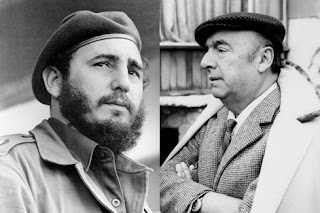20:34 26.11.2016(updated 20:43 26.11.2016)
Fidel Castro’s death will not bring an end to the Cuban Revolution, Russian academic Evgeny Astakhov told RIA Novosti, highlighting that by the term ‘revolution’ he means further development of the Cuban sovereign and independent state. After Fidel Castro’s passing away Havana will continue to pursue the policy course set by the iconic Cuban leader, Russian International Affairs Council (RIAC) expert Evgeny Astakhov of Moscow State Institute of International Relations (MGIMO) told RIA Novosti. “If the ‘revolution’ implies an armed struggle, it ended long ago. If it implies the desire to make the peoples’ life better, I believe this task still remain high on [Cuba’s] agenda. Despite the normalization of relations between the United States [and Cuba], the goals of the revolution survived intact,” Astakhov remarked. The expert called attention to the fact that living conditions of the Cubans remain rather low. However, he emphasized that the people of Cuba preserve their self-respect and dignity. “There are no beggars there,” Astakhov underscored, “The people have a sense of pride and they face their poor living conditions with dignity.” The expert highlighted that at the same time the Cubans can boast their healthcare, cancer treatment and biotechnology. “In many respects, they give us an example of how to develop and live,” he noted. Commenting on Barack Obama’s first visit to Havana in March 2016, Haitian-born journalist Dr. Dady Chery highlighted that despite the trade embargo the US had exerted on the Caribbean state, Cuba “is no longer a country without its own toilet paper or medications, but one that has painfully built its own economy.” “Currently, Cuba holds more than 30 patents in the area of biotechnology, which is its main export. It manufactures more than 800 products for the health needs of Cubans, for whom it provides universal medical coverage,” Chery underscored in her op-ed for News Junkie Post. The journalist added that against all odds the Cubans have developed their own software products, including computer games, cell-phone platforms, and specialized software for the health sector. “The revolution will continue,” Astakhov said, “in ‘spiritual’ sense of the word, I do not mean armed struggle, barricades, ‘maidans’ and etc.” “Not all people have such a sense of pride and sovereignty as the Cubans. There will be changes and reforms in the country and there will be new people which will follow the reform path. But these reforms will be aimed at improving the living conditions of the people, and not making them dependent on the dollar system,” the Russian academic emphasized. Fidel Alejandro Castro Ruz, the legendary Cuban revolutionary and one of the world’s longest-serving leaders, passed away on Friday at the age of 90. His death was announced by his brother and the incumbent Cuban president, Raul Castro. Russian President Vladimir Putin expressed his condolences to the people and government of Cuba. “The name of this outstanding statesman is considered to be a symbol of an entire era in the modern history of the world. A free and independent Cuba built by him and his colleagues became an influential member of the international community and has served as an inspiring example for many countries and peoples,” Putin said in his statement. “This strong and wise man always looked to the future with confidence. He personified the high ideals of a politician, citizen and patriot, sincerely believing in the righteousness of what he did and to which he devoted his entire life. His memory will forever remain within the hearts of Russian citizens,” the Russian President emphasized.
Read more: https://sputniknews.com/politics/201611261047876927-castro-cuba-russia/













